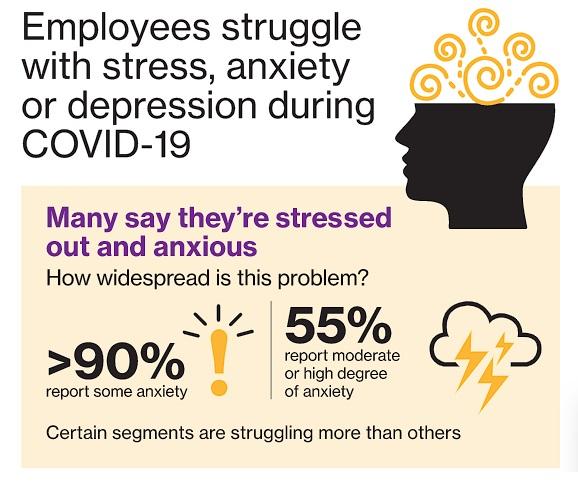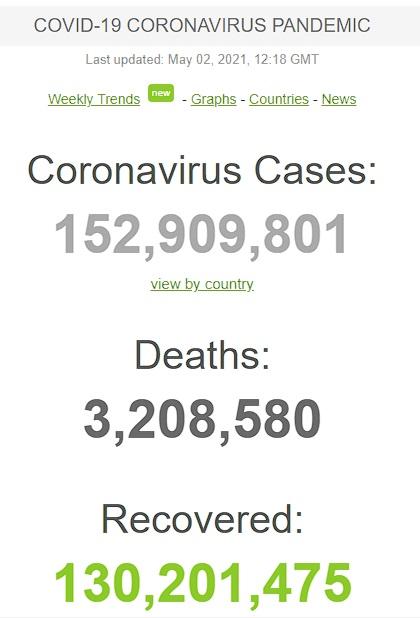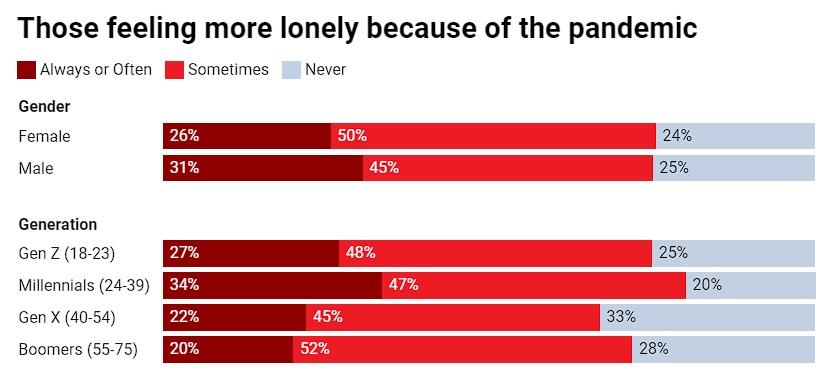The global COVID-9 pandemic disrupted normal life on the planet; nations worldwide had to close their borders while millions of citizens were forced to stay home and maintain social distancing. Today, the harshest measures are already in the past in the majority of countries, and now the main agenda is overcoming the negative effect of lockdowns on the economy. Yet, there are also numerous issues which are largely ignored in society and not mentioned in the speeches of politicians since these problems do not concern the well-being of the economy. One of such issues is depression which many people who had to quarantine and avoid any social contact experienced. The problem of depression caused by the pandemic is not talked about much in the media because newspapers and magazines try to encourage people to stay home. Thus, they intentionally minimize the amount of news related to the negative sides of having a secluded lifestyle. That is why, in this blog post, I would like to share an insight into the detrimental effects of the COVID-19 pandemic on the mental health of thousands of people and provide advice on how to reduce its impact.
The feeling of loneliness is the primary symptom that accompanied the isolation during the pandemic, and the reason here is obvious. Socializing with friends and family members was largely erased from the lives of people, and, in many cases, individuals were left completely alone without anyone else around them. According to one survey, in the US, after the introduction of various stay-at-home orders, more than forty percent of respondents reported feeling lonelier than usual (Ducharme). Not having a partner to talk to and express one’s concerns to may cause loneliness to transform into a harsher condition such as depression and anxiety. Additionally, other problems may contribute to the worsening of symptoms and ultimately aggravate loneliness even further. One of the economic consequences of the pandemic was a rapid loss of jobs. Many workers who did not make much money before the pandemic suddenly stopped having any source of income at all. Thus, when a person can no longer communicate with their colleagues and loses their income, their loneliness can become even more severe and cause them to experience emotional distress.

Moreover, if a person previously had instances of depression and anxiety, their loneliness can serve as a trigger capable of bringing back these conditions. There are millions of individuals who struggle with mental health problems worldwide, and situations, when they have to remain alone for a long period of time are especially dangerous for them. Under normal circumstances, the healthcare system can successfully manage the inflow of patients who have depressive episodes. Yet, during the pandemic, the risk for all people to have a depressive episode instantly significantly increased, while the chance of receiving medical help decreased due to the hospitals’ focus on the virus and the inability of many to pay for doctors’ services. According to scientific research, in the US alone, during the pandemic, the prevalence of depression in respondents was three times higher than before the pandemic (Ettman et al. 12). The study also found that the primary causes of the condition were lack of savings and the increase in the number of stressors. Such evidence demonstrates the fact that the pandemic had a significant role in the rise of depressive episodes in the country.

The current pandemic can certainly be considered a traumatic experience for many people, and looking at other similar events in history; one can better understand what to expect in terms of its effect on mental health. For instance, after the attack on September 11 in 2001, there were many individuals who became severely depressed and had numerous symptoms of post-traumatic stress disorder (Nandi 305). During the pandemic, the number of deaths surpassed the number of casualties in the aforementioned terrorist attack, and there is a chance that many people got depression because of losing their close friends and loved ones. Such experiences inevitably affect the quality of life and mental stability of any individual, as well as increase the risk of anxiety and depression. Moreover, taking into consideration the previously mentioned circumstances such as loss of a job and lack of money, the death of a friend, partner, or a parent becomes especially difficult to deal with. The failure on the part of medical professionals or other people to a person who has a depressive episode can entail extremely negative consequences, and there are already instances known to the public.

The fact that is rarely acknowledged by people is that the pandemic exacerbated the mental health problems of people and made them once again face their issues and try to address them. In many cases, such attempts were not successful and had sad endings. Suicide is one of the worst outcomes of the pandemic and lockdowns. It cannot be said with complete certainty that the pandemic caused the suicide rates to soar, yet it is obvious that there are numerous occasions when people decided to end their life because they simply could not cope with a new lifestyle. One of the examples is the passing of a sixteen-year-old, Spencer Smith, whose mental health deteriorated because he was not able to attend school and interact with his peers in person (Burke). The virus itself did not kill him, but the situation it created ultimately claimed his life. Spencer’s case is not the only one in the country and, needless to say, in the world. Therefore, it is of great significance for everyone who knows individuals struggling with depression to help them.

It is clear that the most severe episodes of depression and anxiety should be managed only with the help of doctors in special facilities, yet under the current circumstances, every person must focus on assisting those in need. Prevention must be at the center of the effort to improve the mental health of people while they are self-isolating. According to one source, in 2020, fifty-five percent of workers reported moderate or increased levels of anxiety (Willis Towers Watson). In such cases, people can start feeling better simply after having a conversation with a friend over the Internet. For example, studies demonstrate that elderly adults can begin experiencing less loneliness after communicating with someone using a video chat or instant messages (Ducharme). Such simple measures can help avoid significant mental crises and their possible negative outcomes, including suicide. According to experts, mindfulness training, as well as cognitive behavior therapy, can positively affect both young and older people in terms of minimizing the feeling of loneliness (Ducharme). Thus, by practicing these procedures, any person can help themselves and their loved ones to tackle their mental health issues and be able to cope with challenging moments of the lockdown.
Yet, individual efforts cannot replace a large government-funded campaign that would warn people of the impact of the pandemic on mental health and provide details on how to receive support. According to Ettman et al. (12), “It seems important to recognize the potential for the mental health consequences of COVID-19 to be large in scale, to recognize that these effects can be long-lasting, and to consider preventative action to help mitigate its effects.” Informing people and providing them with assistance will allow countries to seamlessly transition into normal life after the end of the pandemic.
My decision to write this blog post is based on the desire to let more people know about the risks of the pandemic to mental well-being, which are often ignored in the media. Loneliness is a feeling which inevitably emerges in all individuals who have to self-isolate and do not receive enough social contact. Additionally, the current pandemic forced numerous businesses to downsize, and thousands of people lost their jobs, as well as income. These problems coupled with loneliness can quickly trigger the onset of a depressive episode or anxiety, which, in turn, can have sad consequences. During the pandemic, there were several instances of suicides linked to the deceased person’s inability to cope with a challenging period in their life. That is why it is essential for every individual to do everything they can to support people who are struggling with mental issues due to the pandemic. While the government also must intervene and conduct a nationwide campaign to highlight the problem of depression and offer solutions.
References
“COVID-19 Coronavirus Pandemic.” Worldmeter, 2021. Web.
Burke, Minyvonne. Maine teen dies by suicide after struggling to cope with pandemic, father says. NBC News. 2020. Web.
Ducharme, Jamie. “COVID-19 Is Making America’s Loneliness Epidemic Even Worse.” Time, 2020. Web.
Ettman, Catherine K., et al. “Prevalence of Depression Symptoms in US Adults before and during the COVID-19 Pandemic.” JAMA Network Open, vol. 3, no. 9, 2020, pp. 1-12.
Nandi, Arijit, et al. “Probable Cigarette Dependence, PTSD, and Depression after an Urban Disaster: Results from a Population Survey of New York City Residents 4 Months after September 11, 2001.” Psychiatry: Interpersonal and Biological Processes, vol. 68, no. 4, 2005, pp. 299-310.
Willis Towers Watson. Infographic: Employees Struggle with Stress, Anxiety or Depression during COVID-19. 2020. Web.